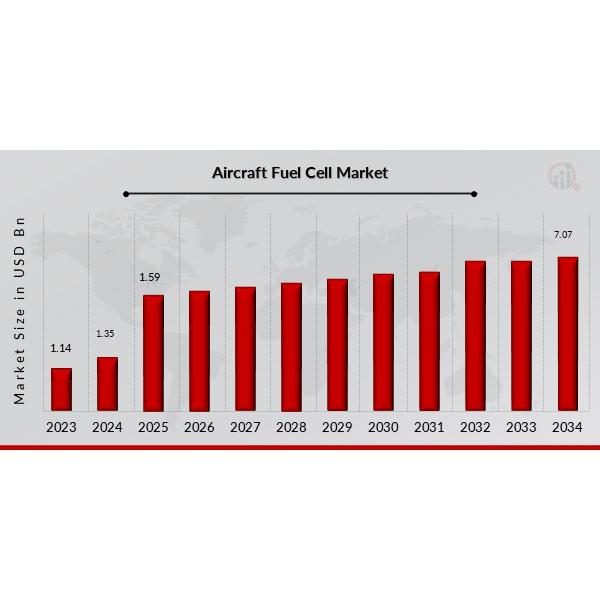Revolutionizing Aviation: Fuel Cells Set to Transform Aircraft Industry
Key Ideas
- The Aircraft Fuel Cell Market is projected to reach USD 7.07 billion by 2034, driven by the demand for fuel-efficient and environmentally friendly solutions in commercial and military aviation.
- Fuel cells offer a promising alternative to traditional aviation propulsion systems, enabling greater efficiency, reduced fossil fuel dependency, and alignment with sustainability goals.
- Hydrogen-based fuel cell technology is gaining momentum in the aviation industry, contributing to decarbonization efforts and offering potential long-term cost savings through improved operational efficiency.
- Advancements in fuel cell technology, particularly in energy storage, materials science, and durability, are key to scaling up these systems for larger commercial aircraft and increasing their attractiveness to airlines and manufacturers.
The global Aircraft Fuel Cell Market is experiencing rapid growth, with projections indicating it will reach USD 7.07 billion by 2034, driven by the aviation industry's focus on fuel efficiency and environmental sustainability. Fuel cells are positioned as a key technology to help reduce carbon emissions and fuel consumption in both commercial and military aviation sectors. The demand for fuel cells is expected to rise as the aviation industry rebounds post-pandemic and invests in green technologies.
Fuel cells offer advantages over traditional propulsion systems, providing greater efficiency, reduced dependency on fossil fuels, and the ability to meet sustainability targets. The transition to hydrogen-based fuel cell technology in commercial aircraft is driven by the global push for decarbonization and cleaner energy sources.
The market is supported by factors such as the increasing regulatory pressure on aviation to reduce emissions, the cost savings potential of fuel cells over time, and the promise of quieter and more reliable aircraft. Innovations in fuel cell technology, particularly in energy storage and materials science, are crucial for the successful adoption of these systems in larger aircraft.
The Aircraft Fuel Cell Market can be segmented into commercial aviation, military aviation, and regional aircraft applications. Commercial aviation is expected to lead the market due to the demand for sustainable air travel solutions, while regional aircraft can benefit from fuel cell technology in areas with limited jet fuel infrastructure. Overall, the positive sentiment towards fuel cells in aviation indicates a significant transformation in the industry towards cleaner and more efficient air travel.
Topics
Aviation
Renewable Energy
Sustainability
Market Trends
Technological Advancements
Fuel Efficiency
Regulatory Compliance
Cost Savings
Latest News
